The Stranglers - Album By Album
The tragic passing of keyboard wizard Dave Greenfield during the COVID-19 outbreak a couple of months ago looks to have brought the curtain down on the long and storied career of the Stranglers. Mainstays of the punk scene and well beyond, the Meninblack truly were one of the greats of the era with a genuinely unique sound that set them well apart from their peers in the class of '77. Originally starting up in the pub rock era, they were one of many bands who saw an opportunity to hitch themselves to the Pistols' bandwagon when it started up. Many bands who attempted similar were rapidly kicked off by McLaren and co but the Stranglers had a real menace and mean streak to their music that allowed them to seamlessly fit in with the new music scene. Powered along by Hugh Cornwell and JJ Burnel's snarling vocals, Burnel's rumbling bass and Greenfield's keyboard wizardry, not to mention the experienced head of Jet Black behind the drumkit, their first two albums remain classics of the era.
They would quickly go on to release arguably the first post-punk album in 1978's Black And White and take this to its natural conclusion on the 1980 concept album The Gospel According To The Meninblack, a brave but ultimately commercially suicidal album which nearly tanked their careers. Things were righted when they scored an unexpected number two hit with the harpsichord led waltz of Golden Brown in early 1982 and this would set the tone for their '80s output which saw them adopt a more Roxy Music style "mature pop" approach to varying degrees of success.
Cornwell's departure in 1990 would rock the band for a bit and they would continue on for a while as a five-piece with new singer Paul Roberts and ex-Vibrators guitarist John Ellis but the departure of the two "new boys" and the arrival of new frontman Baz Warne (formerly of the Smalltown Heroes) saw the ship steadied and a rise in the quality of the albums again.
The Stranglers will be out on the road for the final time in 2021 following Greenfield's passing earlier this year leaving them with an impressive 17-album legacy. As mentioned in the introduction to this column last week, one of the regular features I plan to do on this blog is an "album by album" review of some of the more prolific bands I'm a fan of's output and in tribute to Greenfield, I thought I'd dedicate the first one to the Stranglers. RIP Dave and thanks for the memories.
17. Coup De Grace (1998)
The '90s were a lean time for the Stranglers musically - although the arrival of Paul Roberts and John Ellis did initially give them a slight shot in the arm, the bloom was soon off the rose and by the time of the fourth album with the five-piece line-up, 1998's Coup de Grace they were bearing all the hallmarks of a band who had well and truly run out of steam. It probably says a lot that I bought this album for the princely sum of £3 in a clearance sale at the sadly missed Rocks Off record store in Bradford and still felt as if I'd been short changed - it's dreary MOR rock with nary a memorable tune present (Known Only Unto God is probably the best of a bad bunch but it'd still be terminally embarrassed to sit on nearly any other Stranglers album). The lyric booklet which explains the influence behind the songs is a nice touch but there's absolutely nothing here which you'll want to cue up for a second listen unfortunately.
16. Written In Red (1997)
The third Roberts/Ellis/Burnel/Greenfield/Black album is better than its successor by virtue of the fact that it has two genuinely good songs on it - the swooping Valley Of The Birds and poppy lead-off single In Heaven She Walks which are probably actually up there as two of the best '90s Stranglers songs. It's just a shame that the rest of this album is so bloody dull with songs like the dreary Daddy's Riding The Range being a real chore to listen to.
15. 10 (1990)
The band's final album with Hugh Cornwell is also the original line-up's weakest unfortunately - while its predecessors Aural Sculpture and Dreamtime at least had a couple of stand-out moments to salvage them, 10 is just bland with the band really sounding like they're phoning it in the majority of the time. The likes of Sweet Smell of Success, Man Of The Earth, Never To Look Back and the band's boisterous cover of ? and the Mysterians' 96 Tears are at least reasonably engaging on first listen but they're hardly songs that you'll come back to time and again unfortunately.
14. Aural Sculpture (1984)
Aural Sculpture does at least have one genuinely great moment in lead off single Skin Deep which gave the band a deserved Top 20 hit. But the majority of the rest of it saw the band trying to move into '80s AOR territory and falling flat on their faces a lot of the time. The parping horns on songs like No Mercy and Punch and Judy just grate a lot of the time while the ballads North Winds and Laughing are just dull. An opportunity missed really.
13. In The Night (1992)
The first post-Cornwell album saw the group's two new arrivals Paul Roberts and John Ellis trying to stamp their mark on the band with JJ Burnel taking more of a back seat in the songwriting process. The results are variable - lead-off single Heaven Or Hell is a good laid-back slice of Stranglers menace which could have sat on Feline or Dreamtime without being embarrassed while the atmospheric semi-instrumental Time To Die is a good opener and Southern Mountains and Grand Canyon are both decent enough. On the flipside, Sugar Bullets just sounds messy and the likes of Gain Entry To Your Soul and Leave It To The Dogs are unremarkable. But still, this did show that the new line-up initially had some promise.
12. About Time (1995)
The best of the '90s Stranglers albums, About Time would actually have probably held its own among their '80s output as well. Golden Boy, looking at the fickleness of overnight celebrity, is a suitably punchy opener and the likes of Paradise Row, Lies And Deception and Face are all good additions to the band's catalogue as well. There's still a bit of filler here and there but at the time this was comfortably the band's best album for almost a decade.
11. The Gospel According To The Meninblack (1981)
An utterly bonkers concept album about alien abductions which only just holds together and by all accounts very nearly not only got the band dropped from their label but came very close to sending them insane, Meninblack is a brave attempt by the group to do something different (arguably carrying on the experimental ideas of Black and White a couple of years before) but the lack of anything even remotely approaching a potential hit single on it saw it sink like a stone commercially. Persevere with it though and there's some good moments such as lead-off single Thrown Away but be warned, this is not one for those who like their music immediate...
10. Suite XVI (2006)
The surprise departure of Paul Roberts in the wake of the Norfolk Coast album could have gone either way for the Stranglers but as it turned out, the return to being a four-piece with JJ Burnel and Baz Warne sharing vocal duties actually suited them pretty well and Suite XVI does a good job of carrying on where its predecessor left off in returning the band to their more traditional sound. Lead-off single Spectre of Love could have comfortably sat on The Raven while elsewhere things range from the frenetic punk of A Soldier's Diary to the more countrified I Hate You. There's the odd forgettable moment here but all in all this was a good indicator that the new 21st century Stranglers definitely had some mileage in it.
9. Giants (2012)
If Norfolk Coast and Suite XVI could be considered to be 21st century update of the band's sound on No More Heroes and The Raven respectively then Giants is probably closest to Black and White in its more experimental approach. And it generally works pretty well, kicking off with the moody instrumental Another Camden Afternoon before the epic Freedom Is Insane really takes things up a notch. Elsewhere, Time Was Once On My Side, Boom Boom and the title track are all highlights as well and make this well worth a listen.
8. Norfolk Coast (2004)
By all rights, there's no way that this should have worked. Following on from the dreadful Coup de Grace, it really seemed as if the Stranglers had well and truly run out of ideas and the fact that the band wouldn't record again for another six years during which time guitarist John Ellis departed only seemed to bear that out. So when Big Thing Coming burst out of the traps with a harder sound than the band had employed for years (with Burnel's rumbling bass and Greenfield's swirling keyboards restored to their rightful place at the front), sounding like a 21st century update of the classic Something Better Change and giving the Stranglers their first Top 40 hit for 14 years, it was one of the most impressive comebacks for some time. Norfolk Coast keeps up the fire throughout with new guitarist Baz Warne stepping into Ellis' shoes with minimal fuss and the likes of Long Black Veil, I Don't Agree and the epic Tucker's Grave taking the band's '90s sound and giving it a much needed hardening up to produce the best Stranglers album for almost two decades. It still holds up well now.
7. Dreamtime (1986)
There's quite a few Stranglers fans who hate this album but I've always regarded it as arguably their most under-rated effort. In the official Stranglers biography, Hugh Cornwell describes the group's '80s sound as being akin to latter day Roxy Music (Avalon, More Than This etc) and I think Dreamtime is the album that bears that out more than any other (apart from possibly Feline, more of which in a minute). Led off by the one of the band's best singles in the heartfelt Always The Sun, the likes of the title track and Mayan Skies show a more reflective side to the band's output while the more poppy likes of Shakin' Like Leaf and Big In America at least have the tunes that were sadly lacking on most of the previous album Aural Sculpture. JJ Burnel's Nice In Nice and Was It You? see them sneakily harking back to their punk roots as well to good effect. Give it a go, it may pleasantly surprise you.
6. Feline (1983)
The group's first album after signing for Epic, Feline is pretty much a straight continuation of the more laid-back sound of its predecessor La Folie and achieved similar commercial success with the album going Top 5 and lead-off single European Female making the Top 10. With a more acoustic sound, this very much isn't the Stranglers of the '70s but the likes of Midnight Summer Dream, Let's Tango In Paris, All Roads Lead To Rome, Ships That Pass In The Night and the disjointed but enjoyable Paradise see the group moving their sound forward well. There's a couple of more inconspicuous tracks dotted about but generally Feline is a good album which is well worth a listen.
5. Black And White (1978)
The Stranglers' third album in two years, Black And White saw them taking their sound in a more experimental direction. Lead-off single Nice 'n' Sleazy sees the band almost veering into reggae territory while the frenetic Tank and Sweden saw them keep up the pace of earlier work. However, the gloomy Outside Tokyo (the main keyboard riff of which would later become mega-hit Golden Brown) and the epic Toiler On The Sea saw the group moving off in new directions rather than standing still. A bit harder to get into than the other '70s Stranglers albums, Black and White is more than worth the rewards if you persevere with it.
4. No More Heroes (1977)
The Stranglers' first two albums came out within 8 months of each other and the vast majority of songs on No More Heroes had taken shape around the same time as those on its predecessor did. But it's certainly not a cast-offs album - Something Better Change and the title track are the sound of '77 rebellion writ large while Dagenham Dave, Dead Ringer, English Towns and Burning Up Time keep the aggressive fire that made their debut so good burning nicely. The group would start to push their sound slowly away from these origins with Black and White the following year but No More Heroes is an excellent kiss-off by the band to the punk scene that broke them.
3. La Folie (1981)
La Folie is probably best remembered for its second single Golden Brown, the song which gave the band a much needed commercial shot in the arm after their previous seven singles had all stalled outside the Top 30. But there's much more to it than that - if you want the sound of the band at their most accessible then this is a good place to start - songs like It Only Takes Two To Tango, The Man They Love To Hate, Let Me Introduce You To The Family, Non-Stop and the menacing Everybody Loves You When You're Dead see the band putting out some of their catchiest material to date. Maybe it doesn't have quite as much aggression as the band's first two albums but if you're looking for a good entry point into listening to the band then this is definitely it.
2. Rattus Norvegicus (1977)
Quite simply, nobody was expecting this when punk broke in '77. While the majority of punk bands were simple exercises in white-hot three-chord anger, the Stranglers, having cut their teeth on the pub rock scene, were a bit more musically adept but just as ferocious. The brutal opening one-two of the seething Sometimes and the pummelling Goodbye Toulouse gets this one off to a brilliant start and the likes of the frenetic London Lady and the more measured Hanging Around and Princess of the Streets (if anyone wants to know why the Stranglers were initially labelled a punk Doors then give this one a spin) keep the quality standards up before it climaxes with the paranoid seven-minute epic Down In The Sewer. Just as much of a punch to the gut now as it was forty plus years ago, Rattus Norvegicus is a classic album in every sense of the word.
1. The Raven (1979)
Maybe a bit of a surprise choice for the number one spot but for me, The Raven is where all the elements of the Stranglers' sound combine perfectly to make an absolutely killer album. You want the bass-led punk assault of the early stuff? Give lead-off single Duchess a listen. You want more experimental material? Try the title track or the truly eerie Meninblack. Darker gothier songs? Dead Loss Angeles or the sinister heroin ballad Don't Bring Harry is where you should head. More straightforward pop stuff (albeit with the trademark Stranglers twistedness)? Nuclear Device should sort you out there. Quite simply, The Raven combines all the trademark Stranglers elements brilliantly and for me it's their best effort and a perfect introduction to the band if you need a starting point. Give it a listen pronto if you haven't already.





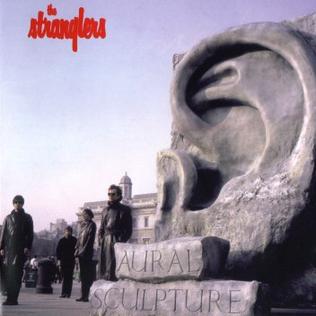
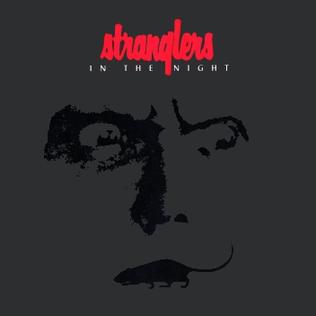
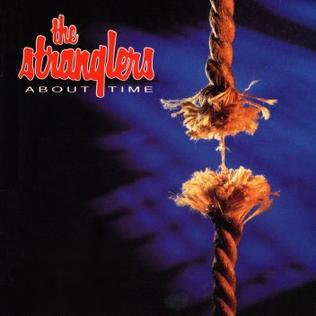
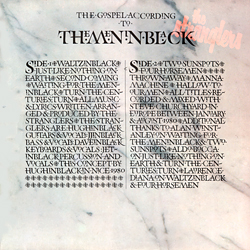

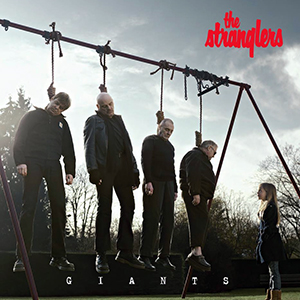
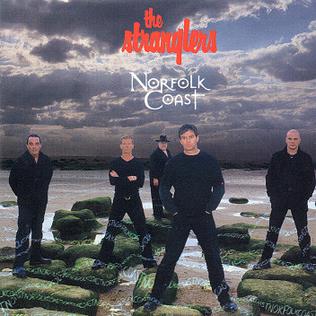
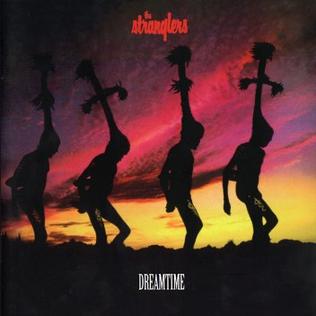

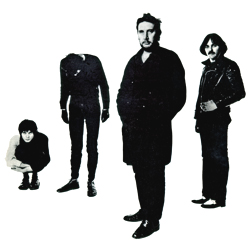
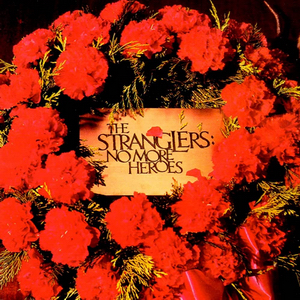
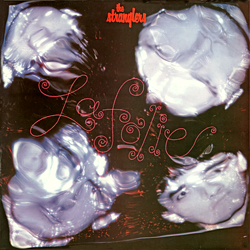



Comments
Post a Comment